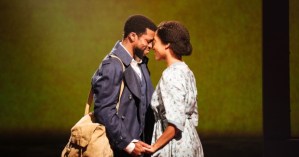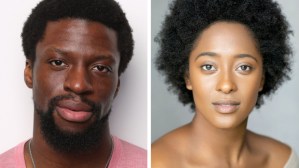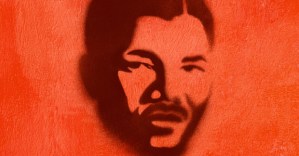”Mandela” musical at Young Vic – review
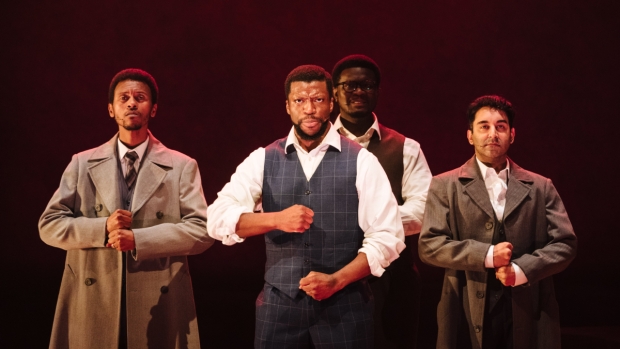
© Helen Murray
One scene starkly reveals the problems. Mandela, imprisoned on Robben Island for sabotage against the apartheid government, is allowed to hug his wife Winnie for the first time in 20 years. But instead of a happy reunion, it becomes an argument: in his absence, Winnie has been cruelly treated, subjected to 16 months of imprisonment in solitary confinement. It has changed her and her views. While Nelson still believes in his vision of a multi-racial country under black rule, she has become committed to punishing the white regime – and those who collaborate with them.
It is a debate that lies at the heart of things – certainly of Winnie’s reputation (she has by this time imposed her own reign of terror in Soweto) but also of Mandela’s own legacy as a man who had a particular vision of humanity. It is superbly performed by Michael Luwoye as a rich-voiced and dignified Mandela and Danielle Fiamanya, outstanding as Winnie, passion and outrage quivering through her every movement.
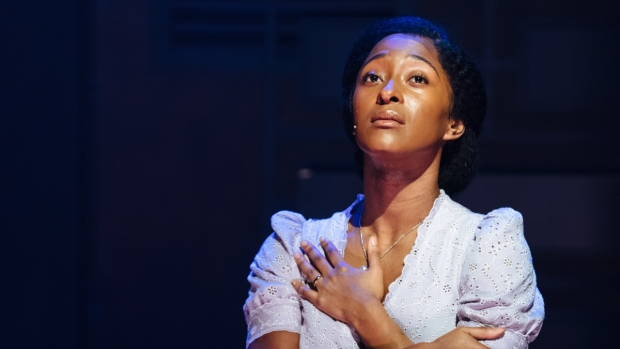
© Helen Murray
Yet it is a moment of crushing banality. The Borowskys can neither find the music nor the words to elevate the debate, to rise to the confrontation. Instead, it’s just two people singing at each other.
Part of the problem lies with Laiona Michelle’s bland book, which starts at the Sharpeville massacre in 1960 and ends with Mandela’s release from prison in 1990, which seems to make no dramatic distinctions about which scenes should be allowed to breathe and which should simply be omitted. It might be important to show Oliver Tambo (Ntsikelelo Nicholas Vani) at the UN whipping up support for sanctions, but it is quite hard to make drama of it. Yet Mandela’s arrest whips by in a clumsy flash. It also feels peculiar to symbolise all Apartheid’s leaders in one man (Earl Carpenter); it adds to the oddly generic, cartoonish sense of storytelling.
Things improve when the focus shifts to Mandela’s family – with lively performances from Posi Morakinyo as his son Thembi (killed in a car accident and whose funeral Mandela wasn’t allowed to attend) and Nomfusi Ngonyama and Leanne Robinson as daughters Zeni and Zindzi. The mood is sentimental, but at least there’s chance to build character and explain specific feeling.
It also, in the second half in particular, allows the show to begin to play to its strengths – the inspiration and emotion generated by Mandela’s endurance and willingness to suffer himself in order to win his country freedom and pursue a particular vision of a multi-racial South Africa. Probably the best single song goes to the prison warder Stewart Clarke, who changes his own views faced with a man who won’t allow himself to hate, whatever is taken away from him.
This emphasis on Mandela’s essential humanity is buttressed by some exceptional singing from a chorus representing the people of South Africa – and some exhilarating dancing choreographed by Gregory Maqoma – which increases in intensity and power as the show progresses, helped by additional music and lyrics by Bongi Duma. For all its flaws, it’s an enjoyable evening, full of good performances, and an emotional reminder of what a deeply held belief in people’s capacity for change and forgiveness can achieve.


